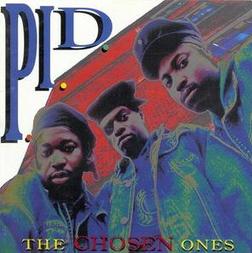I’m a white guy and I like rap (apparently I’m not the only one).
 Now, I’ll admit that when I was in middle school, it was Christian rap.
Now, I’ll admit that when I was in middle school, it was Christian rap.
Like, dc Talk-rap. And I still remember the first rap album I bought that made me feel like I was a bit of a rebel. The Christian rap group’s name was P.I.D., which stood for Preachers in Disguise. And yes…wow…you can listen to the whole album on YouTube.
One of their songs used the word damnation and I thought I was such a rebel, listening to an album that used a “bad” word like that. Hey, I was in 6th grade…
Well, I’m not listening to P.I.D. any more, or any Christian rap for that matter. More likely to be on my iTunes shuffle is Kanye West, Eminem, Macklemore, Jay-Z, Common, Wiz Khalifa and others. And the one that’s been on repeat for me the past few days since seeing Selma is Common and John Legend’s “Glory” featured in the movie.
I know there have been lots of conversations about white rappers, and their place in the hip-hop world. While I’m not totally up on all of the controversies in the hip-hop world, I know that some comments that Iggy Azalea made a few weeks ago brought a lot of negative press her way. There have been critiques of Azalea embracing black and hip-hop culture just enough to get famous and rich, but not enough to care about all of important race issues in our country after Ferguson.
One of the most interesting conversations that I’ve listened to about all of this was Macklemore, when he was interviewed on New York’s Hot 97 radio station a few weeks ago. I’ve listened to his music before but never heard him talk about race and hip-hop. He’s a smart dude. If you have an hour or so – I’d encourage you to sit back and check out this interview. If you’re easily offended by profanity, then maybe you don’t want to watch it, or just be aware that there is profanity in this video.
One of the things that impressed me most about his comments was simply his self-awareness. He knows that he’s a white dude in the hip-hop world. He knows about his white privilege. He knows that even though he’s got the same “Parental Advisory: Explicit Content” sticker on his albums that most hip-hop artists do, white parents are way more supportive of their kids listening to Macklemore than to black rappers.
He’s very aware of his place in that culture and the privilege that he has as a white person.
“White people can turn off the TV when we’re sick of talking about race. White, liberal people want to be nice. We don’t want to be racist. We want to be, ‘Oh we’re post-racial. We don’t want to talk about white privilege and it’s all good, right?’ It’s not the case,†Macklemore said. “We have to get past that awkward stage of the race conversation. As a white person, we have to listen.â€
Now, you and I are not famous white rappers making a ton of money, but I think we could all watch this interview and learn a lot.
With everything going on in our country right now, I think it’s important for those of us who are white, who benefit from white privilege more than we realize, we need to understand that and let that cause us to be quick to listen and slow to speak.
“As a white person – we have to listen.”
I’m not sure we’re all very good at that. I know that I’m not. I don’t like to admit that I have white privilege. I don’t like to be held accountable for the sins of others – and I’m inclined to say, “Well…that’s not me though…I didn’t do that. I wouldn’t have said that.” But…we have to listen.
When our black brothers and sisters talk to us about systemic racism that they have experienced in their lives, we have to listen. When black and brown men and women talk to us about the institutionalized racism inherent in the system…whether we see it or not…we have to listen. We need to listen to the stories of others for the very reason that they are not our stories…we don’t know.
Macklemore gets that. And we all have something to learn from him and his humility.